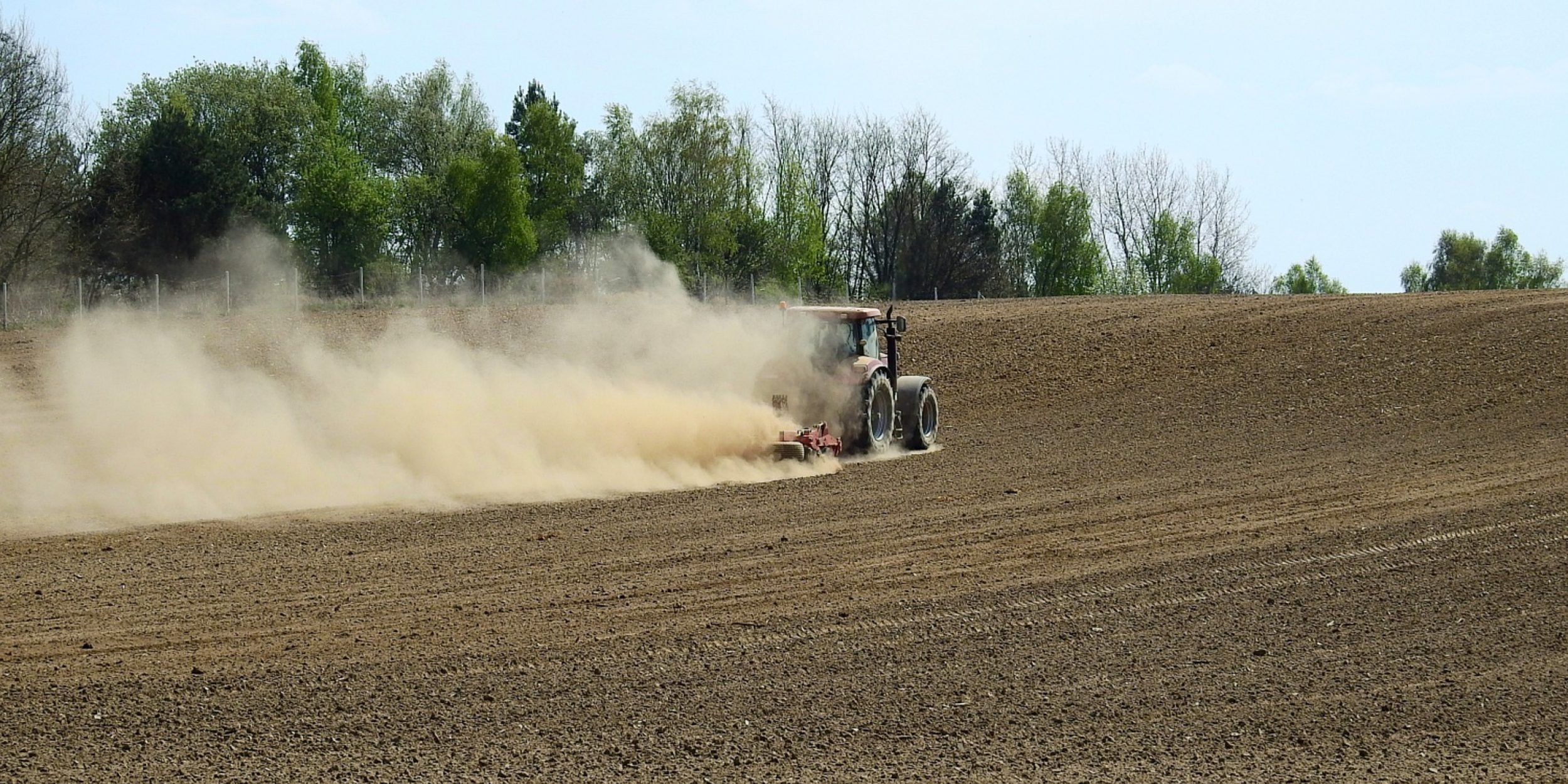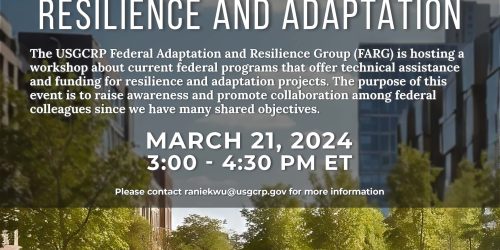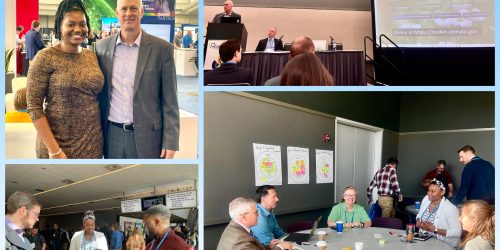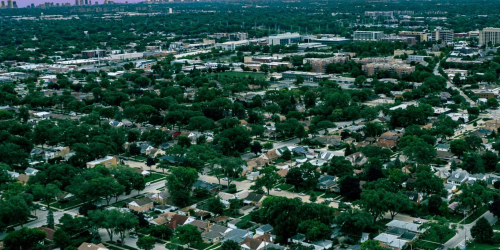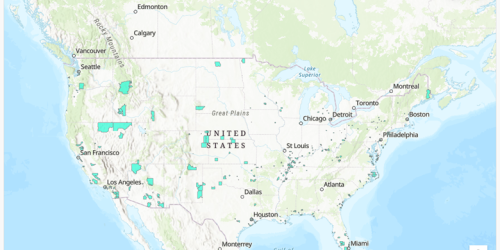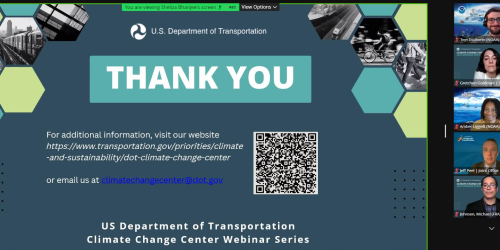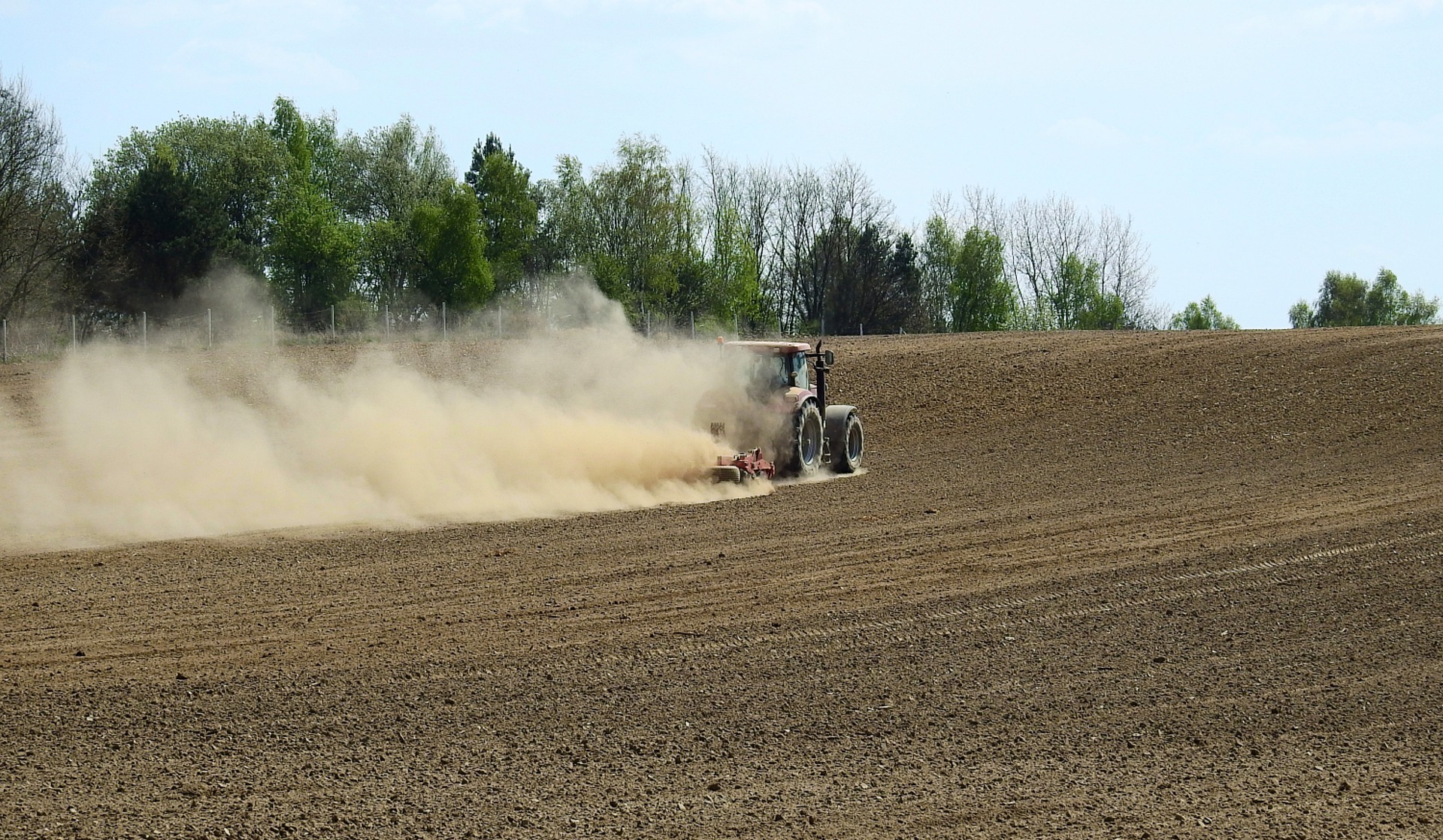

From land-use planning to energy and transportation, decision makers in many sectors across the country are increasingly seeking tools, services, and resources to build resilience to climate-related impacts at local and regional levels. In response to this growing demand, the Climate Resilience Fund (CRF) is pleased to announce over $320,000 in competitive grant awards through its Coordination and Collaboration in the Resilience Ecosystem (CCRE) Program for new collaborative projects led by seven organizations.
“The CCRE’s 2020 awards represent investment areas identified and prioritized by a broad cross-section of climate adaptation and resilience practitioners,” said CRF’s Managing Director John Nordgren. “They reflect core values of CRF and its partners by elevating projects with a clear focus on social equity and nature-based solutions.”
These grants are made possible through a unique partnership between CRF and the NOAA Climate Program Office’s Communication, Education, and Engagement (CEE) Division, with generous support from the Doris Duke Charitable Foundation. By helping U.S. communities and businesses better understand and manage their climate-related risks, the work directly supports NOAA’s mission and aligns with the goals of the U.S. Climate Resilience Toolkit.
“I am thrilled to be working with the Climate Resilience Fund in co-sponsoring the crucial work of climate adaptation and resilience-building projects all across the nation,” said David Herring, CEE Division Chief. “No single entity is sufficient to meet the nation’s needs for climate services. To achieve the efficiencies and economies of scale that are required, we must build a robust public-private partnership—a ‘resilience ecosystem’—that enables us to collaborate instead of working in a competitive, siloed mindset.”
CRF designed the competition to incentivize innovative collaborations that create efficiencies in the “resilience ecosystem”—an open community of public and private entities working to sustain and advance science-based resources, services, tools, and expertise that help Americans proactively increase resilience to climate-related impacts.
Rather than funding the creation of new products, the proposal review team selected organizations seeking support for projects that build upon, connect, and increase access to existing resources. The team prioritized projects pursuing the following objectives:
- meaningfully incorporating or addressing social justice and equity issues, prioritizing diverse and/or vulnerable communities, or engaging community leaders in co-production of resources, services, or priorities for action; and
- advancing or prioritizing nature-based strategies and solutions to support community resilience.
“From analyzing tree cover in communities vulnerable to urban heat impacts to building out a database of effective climate adaptation strategies, we’re proud to be able to support seven novel projects,” said Darren Long, Associate Director at the Climate Resilience Fund. “Together, they are working to make existing tools and resources both more effective and accessible to end-users in communities across the country that are confronting the impacts of climate change.”
The seven new awardees include:
Local Government Commission – $50,000
For a partnership with the Alliance of Regional Collaboratives for Climate Adaptation (ARCCA) to set in motion an accelerated cycle of learning, implementing, and institutionalizing equity awareness, expertise, and best practices in local resilience projects.
Headwaters Economics – $40,000
For creating and distributing training resources that improve the accessibility and applicability of the existing Neighborhoods at Risk tool and help to scale up its use.
Institute for Tribal Environmental Professionals (ITEP) – $37,898
To redesign a set of freely accessible online learning modules created by the Swinomish Tribe that included a climate change community health assessment founded on Indigenous values, which centers on the health of the people and the health of the homelands. This project will expand these valuable learning modules to better engage, communicate with, and support resilience in a diversity of Indigenous communities across the U.S. that are often on the frontlines of climate change impacts.
Earth Economics – $45,091
To quantify the economic, social, and environmental value created by the natural and built infrastructure on National Forest lands — these are values at risk of being lost to fire and pests, which can be protected by restoring forests to a more resilient state – by adding a Values at Risk layer to the U.S. Forest Service’s Conservation Finance Opportunities Mapping Tool.
American Forests – $50,000
For implementing the Tree Equity Score and Mapping Tool for every urbanized neighborhood in the State of Rhode Island, which measures how well the benefits of urban tree canopy are reaching low-income communities, populations of color, and populations that are particularly vulnerable to extreme heat.
The GEOS Institute – $50,000
To build out a freely available Climate Resilience Strategy Database that will increase access to current information regarding the effectiveness and tradeoffs of possible climate adaptation and resilience tools and resources for various climate vulnerabilities, including the effectiveness of specific strategies on social equity and ecological systems. More information.
Bonneville Environmental Foundation – $50,000
To build a regional network of non-profit, Tribal, and public agency restoration practitioners and partners in order to share and scale up strategic nature-based solutions to climate impacts in riparian corridors across the Pacific Northwest. More information.
To learn more about these new grants please visit:
http://climateresiliencefund.org/grants/
NOAA’s Climate Program Office manages competitive research programs that fund high-priority climate science, assessments, decision support research, outreach, education, and capacity-building activities. CPO’s work is designed to advance our understanding of Earth’s climate system and prediction across timescales, provide timely and authoritative climate data and information for a climate-smart nation; and to foster the application of this knowledge in risk management and adaptation efforts to help Americans plan and respond. CPO-supported research and activities are conducted in regions across the United States, at national and international scales, and globally. For more information, visit cpo.noaa.gov and climate.gov, follow NOAA Climate.gov on Twitter,Facebook, and Instagram , and subscribe to the Climate.gov newsletter.
The Climate Resilience Fund was founded on the belief that climate change adaptation and resilience strategies embody an opportunity to re-shape societies’ relationship with the natural world; an opportunity to mainstream principles and practices of sustainability, conservation, and social equity into decision-making in all sectors and at all levels of governance. We created CRF to help advance a positive vision of a climate resilient society and to mobilize the knowledge and resources for achieving it. For more information, visit http://climateresiliencefund.org.


